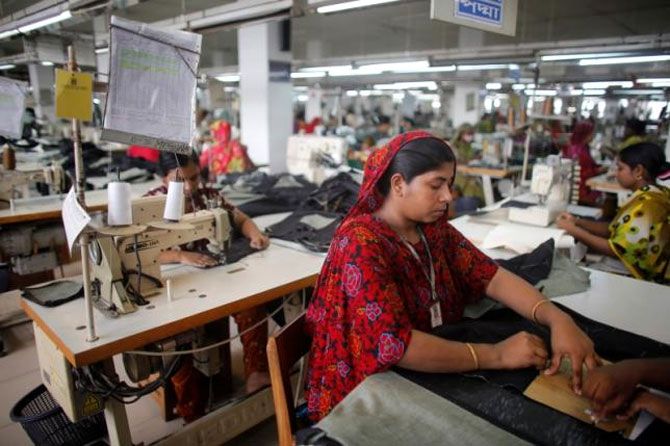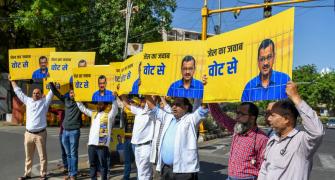Government tenders could soon go to bidders who promise to train highest number of youth.
 The Narendra Modi-led government has begun a pilot study by asking some of the key infrastructure departments to put such a clause in their advertisements for new projects.
The Narendra Modi-led government has begun a pilot study by asking some of the key infrastructure departments to put such a clause in their advertisements for new projects.
The measure is part of the government’s efforts to ensure that employment picks up in tandem with the planned expansion of state-financed capital investments in the economy.
The ministry of road transport and highways, for instance, has inserted the clause in its latest tenders and the ministry of railways plans to do the same.
The former has made it mandatory for every company that gets a highways contract “to train at least ten persons for every Rs 1 crore spent on the project”.
The contractors will be required to train a specific number of people in technology of road construction, said Sanjay Mitra, secretary of the ministry of road transport and highways.
The training will be a short-term affair which will run as long as a project is executed.
A road project usually takes about a year to complete. The contractor, however, will not be bound to offer jobs to such trainees.
To ensure that young people sign up for training, government will offer them a stipend of Rs 15,000 per month.
Other ministries are also mulling ways to introduce similar clauses in their tenders.
A ministry of railways official said such training will be particularly relevant in the poorer districts with fewer technical institutions.
The skilled workforce would then be able to tap into better employment opportunities.
Commenting on the trendsetting advertisements, Nitin Gadkari, minister for road transport and highways, said he has asked highway contractors to “train local unemployed youth in highway construction as well as up-skill both unemployed local youth as well as those already working under contractors”.
Officers in his ministry said the approach to train youth with employable skills was being taken for the first time.
It’s somewhat similar to the emphasis by governments of many Organisation for Economic Co-operation and Development (OECD) countries, including the US, to justify spending from the exchequer.
The Indian government has so far never asked contractors to pick up a liability to train youth.
Lawyer Suman Jyoti Khaitan was of the opinion that it would not be a problem for the ministries to put in such conditions in their tenders.
The rules for issuing tenders by ministries are spelt out in the General Financial Rules, issued periodically by the department of expenditure in the finance ministry.
A government official said since there was no mention of labour content in those rules, it was possible to bring in additional yardsticks.
“However, at some stage a department is certainly going to ask for clarifications,” he said.
While the road ministry has put in a specific percentage of training to accompany the spending, the government expects each ministry to lay out its own yardsticks.
A senior government official said it would be difficult for a ministry or department to have less ambition in projected employment compared with others.
This is expected to make them stretch the envelope to squeeze in more training hours from each project that is commissioned.
The employment component is also expected to be included in other expenditure proposals that are sent to the Cabinet.
While the recent package of Rs 6,000 crore for the textiles sector was the first where an explicit connection with jobs was spelt out, others are also expected to do so.
Textiles ministry officials said they used a multiplier of 70 jobs created for every Rs one crore of investment to convince the Union Cabinet to approve the project.
So along with the details of how much additional investment will be created by a project, Cabinet approvals will now also mandate specifying how much additional employment will be created from such public expenditure.
The employment yardstick will also be applied in the bilateral or multilateral trade agreements signs from now. Arvind Mehta, additional secretary, ministry of commerce, said it is likely to be an important consideration for the government to decide if a free trade agreement (FTA) is worth the cut in import duties.
In most cases, India has higher tariffs than its counterpart nations. Work on the India-Australia FTA has progressed to the point where the government expects to sign the document in this financial year and it is expected to be the first such document where this consideration will be spelt out.
The Modi government has reasons to be concerned that employment creation in the formal sector has been persistently weak.
The 27th Quarterly Employment Survey by the ministry of labour shows formal job creation was only 272,000 in the one-year period till September 2015.
Of this, 114,000 has been in apparel sector.
Photograph: Reuters








